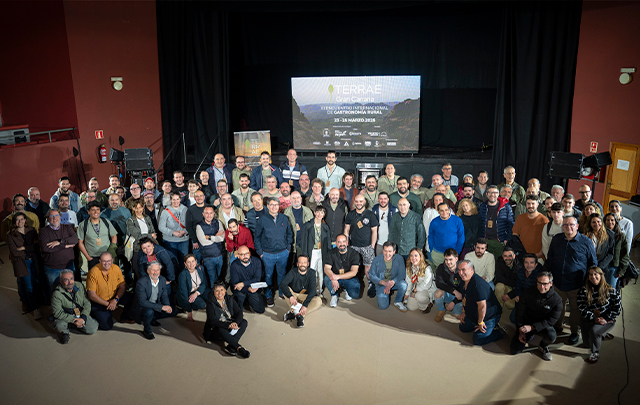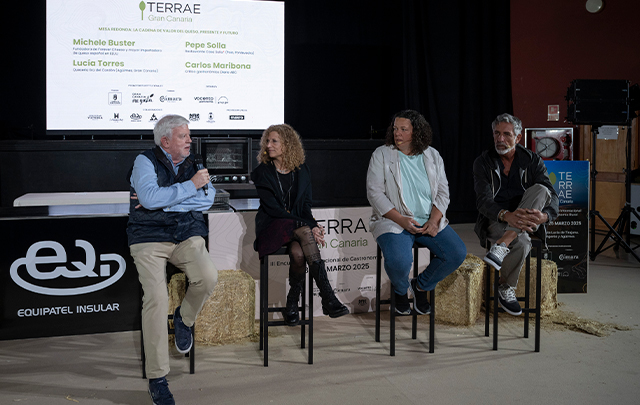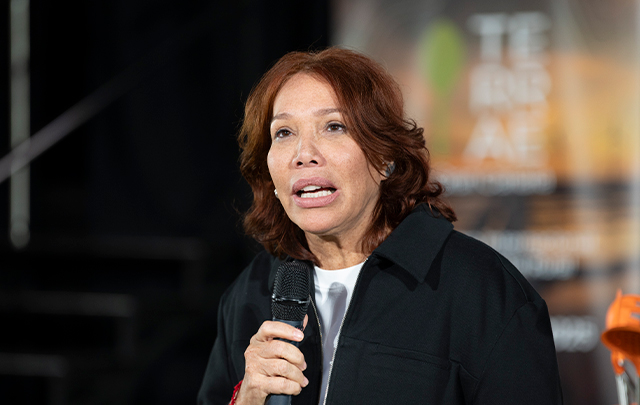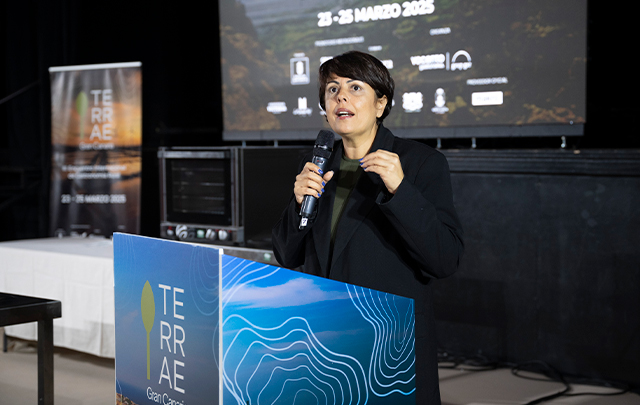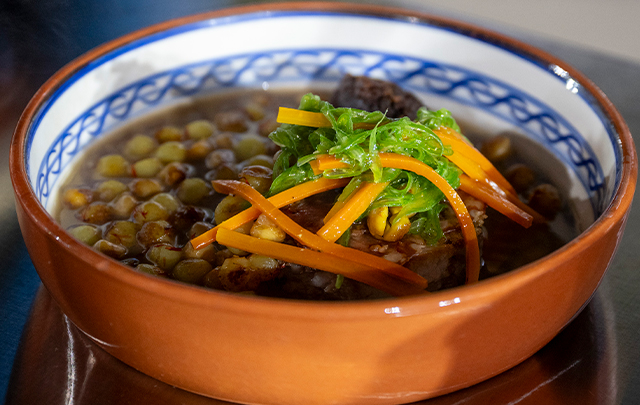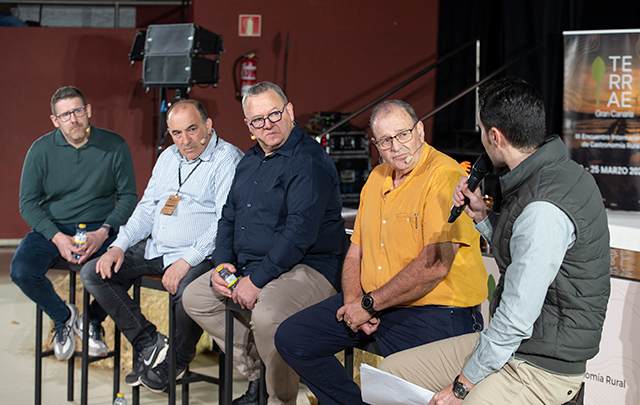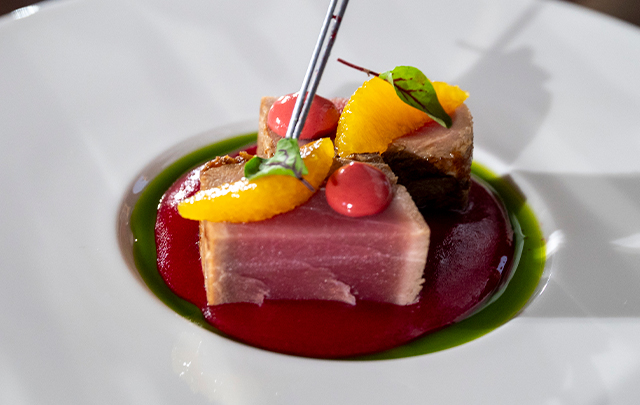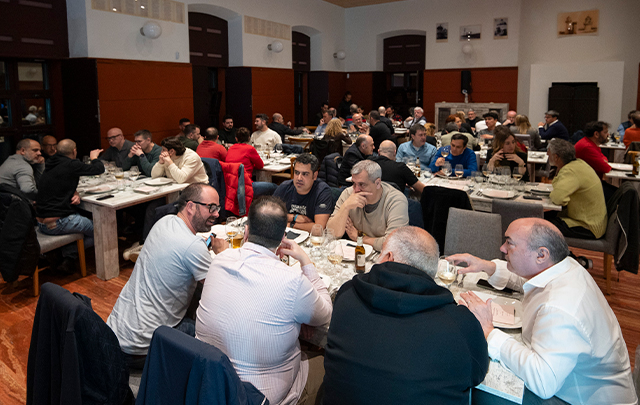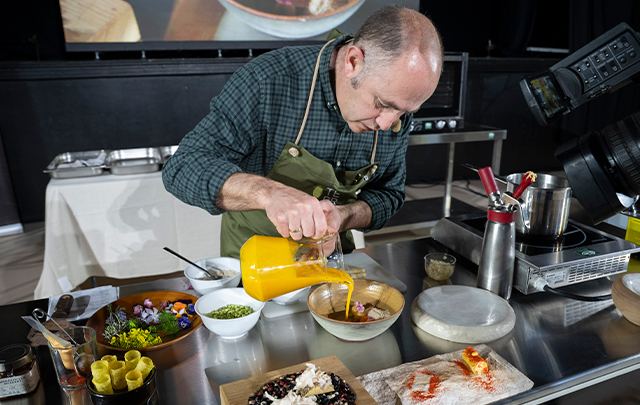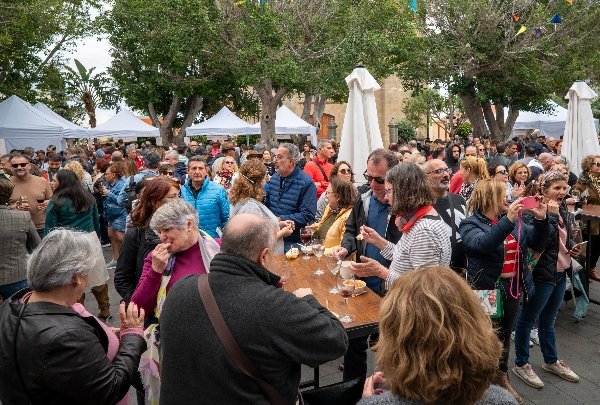News
Agüimes Declaration: a commitment to the future of rural cuisine
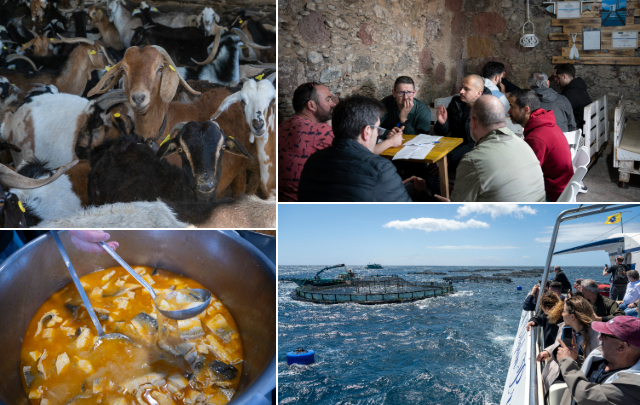
The more than 50 rural chefs participating in Terrae 2025 have drawn up a document in which they declare rural cuisine to be a cultural heritage and commit themselves to preserving and promoting it.
Rural cuisine is much more than a form of food: it is a living expression of culture, a language of flavours, memories and territory. Through recipes handed down from generation to generation, rural gastronomy combines knowledge of the natural environment with a sustainable and deeply human way of life'.
In this context, a group of more than 50 chefs from rural Spain, Portugal, Italy and Colombia have drawn up the Declaration of Agüimes, a manifesto in favour of the recognition, protection and promotion of rural cuisine as a cultural heritage. The document, which was drawn up during the third edition of Terrae, held in Gran Canaria from 23 to 25 March, and presented at the closing dinner at the La Pasadilla restaurant in Ingenio (Gran Canaria) by the conference director, Benjamín Lana, and the mayor of the rural community, Luis Alberto Lera, appeals to public institutions to give rural gastronomy the same level of support as other cultural expressions such as cinema or music. The Agüimes Declaration was drawn up with the intention of continuing, as the document will serve as a basis for further joint work on the future of rural cuisine.
The declaration highlights the need to ensure decent wages and attractive working conditions to attract and retain talent in rural areas. It also stresses the importance of promoting egalitarian and participatory working environments that allow people to develop their life projects in these areas. Similarly, one of the commitments made is to "strengthen links with local communities by involving village people in gastronomic projects, prioritising local talent and giving visibility to nearby producers". To this end, specific regulations are needed to facilitate commercial exchanges between small producers and rural restaurants, and to promote the conservation of local products in danger of disappearing.
In addition, the chefs who support the Agüimes Declaration are committed to developing their own rural identity, promoting the diversity of culinary cultures and making institutions aware of the importance of their involvement in the protection of rural cuisine. Finally, the study project "to promote the Terrae brand as a label for restaurants and producers that defend gastronomy that is committed to and rooted in the territory, with the aim of strengthening the rural cuisine movement and its impact on the local economy" stands out. With this declaration, professionals in the sector reaffirm their commitment to a sustainable future rooted in the culinary traditions of the people, ensuring that rural gastronomy continues to be a fundamental pillar of cultural identity.
This document was drawn up during the Third Meeting of Rural Gastronomy, which brought together more than 50 chefs from different regions of Spain, including all 17 Autonomous Communities. There were even international rural chefs from Portugal, Italy and Colombia, whose representative, Leonor Espinosa, was awarded the Terrae prize during the congress for her commitment to her country's indigenous communities and the preservation of their culture.
In addition to the presentation of the Agüimes Declaration, the last day of Terrae 2025 was also a day dedicated to artisan and quality products. The morning began with a visit to one of the largest goat herds in Gran Canaria, with more than 1,500 goats of the native Canarian breed, managed by José Miguel Ortega and his wife Paqui Pérez at the La Gloria farm (San Agustín). This family-run dairy produces between 2,000 and 2,200 litres of milk a day, from which 270 kilos of artisan cheese are made every day. Ortega says that the secret of good cheese is the quality of the milk, which is helped by the fact that "the cattle graze freely on the stony slopes of Amurga, where the temperature is almost constant, tempered by the proximity of the sea".
And from land to sea, because the expedition also ventured out to sea to see the work being done by Aquanaria, a company that breeds large Atlantic sea bass, in the sea bass farms it has set up off the coast of the Canary Islands. Arancha Apesteguía, Aquanaria's marketing manager, accompanied the conference delegates on the trip aboard the Princesa Ico catamaran and provided various details about the breeding of this fish, which is "grown in nurseries two miles off the coast and with a very low breeding density, 98% water, 2% fish, which allows the sea bass to be very mobile".
How the product tastes when used in practice
The sensory part of the visits, which took place on Tuesday during this third Terrae, was also translated at the table. After tasting some of the cheeses produced at La Gloria, the guests of this edition enjoyed a lunch on the high seas, prepared by local chefs Nelson Pérez, of the Nelson restaurant (Agüimes), and Marina Tudanca & Alejandro Sosa, of the Maraca restaurant (Las Palmas). On deck, diners were able to enjoy several dishes with sea bass as the main ingredient, such as sea bass tiradito with jalapeño dressing and mini fried anchovies; sea bass and gofio broth or fresh sea bass jarea. There was also no shortage of traditional stews, such as cuttlefish stew.
The gastronomic finale of the third edition of Terrae took place at the steakhouse La Pasadilla (Ingenio), which for a day was immersed in the flavours of León when it welcomed José Gordón from the meat temple El Capricho (Jiménez de Jamuz). Gordón and Carmelo González, the chef at La Pasadilla, offered a feast of products, where you could sample the exclusive cuts of beef from the former's herd in a variety of recipes, such as roast picanha with pickled red cabbage, rump steak tartare with brioche bread or homemade Leon sausage, made with 100% beef.


